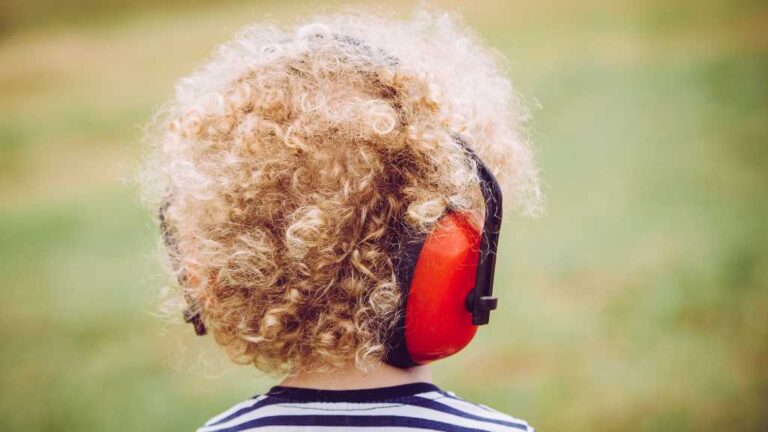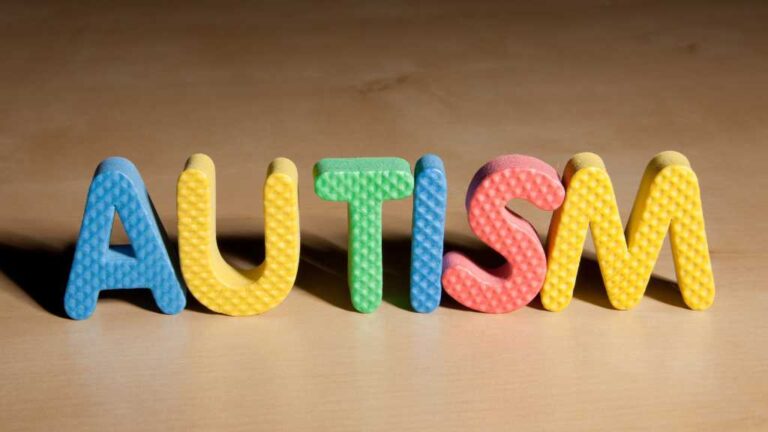Table of Contents
How Does The DAAY Court Truly Help Young Offenders With Autism?
Picture a reality where justice-involved youth with an autism spectrum disorder (ASD) diagnosis receive the accommodations they need during a crisis, like when facing the harsh reality of the criminal justice system.
Imagine a world where every child and teenager, regardless of their neurological differences, obtains the support they need to thrive throughout life while remaining safe, even when an offense occurs and court proceedings follow.
For justice-involved youth with autism, navigating the court system and legal process can be nerve-wracking and scary for them and those who love them.
In many cases, these young people can become entangled in the justice system due to committing avoidable, sometimes unintentional, offenses related to their ASD symptoms.
While aggression may not be a core symptom of autism, some on the spectrum demonstrate aggression towards others at times or engage in self-destructive behaviors that can be violent, harmful, and highly damaging.
In some cases, young people with autism receive criminal charges for battery, assault, and domestic violence. In others, they demonstrate threatening behavior toward authorities like first responders, educators, and community members, which can be challenging.
Complex interactions with legal authorities can be even more problematic and dangerous for those with autism at times, especially if they are profoundly impaired or triggered.
These concerns and the potential legal challenges those with autism can, at times, face leave some families to consider: how does the DAAY court truly help young offenders with autism?
New programs like DAAY Court in Las Vegas, Nevada, are making court proceedings more manageable and efficient for young people on the spectrum through accommodations.
This program works to produce more productive outcomes for children and teenagers with ASD facing legal challenges to diffuse their criminal activity now and in the future.
The program works so well by helping those with ASD better understand their charges and the behaviors that led to them. It also helps reduce the time they spend being processed by the justice system in the long term through understanding and support.
The integration of proactive, inclusive therapy models like ABA therapy or applied behavior analysis into DAAY court creates even more significant positive outcomes for this population experiencing these challenges.
This blog from ABA Centers of Georgia delves into the critical roles that both DAAY Court and ABA therapy play in improving the lives of young individuals with ASD and their families.
We will also explore the interplay of how ABA principles can help the justice system reduce recidivism rates for juveniles with autism.
For those affected by autism, this information may be crucial, especially when legal involvement might be a consideration, so please keep reading.
Visit the ABA Centers of Georgia here for more information about our compassionate ABA care.
Also, remember to check out our other blogs on autism, ABA therapy, and neurodiversity.
What Is the DAAY Court?
The Detention Alternative for Autistic Youth (DAAY Court) is a unique court initiative tailored to assist justice-involved youth with autism to experience more accommodating and inclusive courtroom and legal proceedings.
This specialized program provides intervention and diversion services for individuals with ASD who are facing legal obstacles to reduce the potential for future offenses and expand their support network for better experiences living on the spectrum.
In 2012, a study reported roughly four percent, or 100,000, of those incarcerated in the United States federal prison system have autism. The statistics demonstrate the high need for these types of programs and the problems that exist within health care and the prison system that call for their efforts.
What makes the DAAY Court especially notable is its recognition that conventional court procedures may not be appropriate for individuals on the spectrum, and it takes action to improve them.
As one example, the DAAY court lowers the bright lights in the courtroom for those with autism, who the sensory sensation may trigger. They may also work to ensure that ASD individuals who attend court experience quieter settings while there.
The program involves collaboration among judges, attorneys, mental health experts, and educators to create customized plans for each participant, promoting long-term progress that rewards their achievements.
Through accommodations, a more comprehensive approach that accepts neurodiversity, and integrates ABA therapy principles, the DAAY court system helps reach more neurodivergent offenders on their level so they can learn from the experience and potentially avoid more legal obstacles in the future.
Although not every neurodivergent family is familiar with the DAAY court system, and it isn’t available in all states, its introduction is a significant step in the right direction with long-term advantages for the autism community involved with the legal system.
How Was the DAAY Court Established?
Created by Judge Sunny Bailey in 2018, the DAAY Court addresses the unique needs of ASD participants by considering their condition and accommodating its features to reduce the potential for future offenses and promote positive associations with following the law.
The judge’s understanding of the positive effects of ABA and other essential ASD supports stems from her own experiences raising a child with autism.
Her personal experiences and observations motivated her to push for the legal system to recognize and address the distinct needs of individuals with ASD, leading to the establishment of the DAAY Court.
Understanding Justice-Involved Youth with Autism
Youth with autism involved in the justice system often face unique challenges that set their experiences apart from those of neurotypical peers.
Symptoms of ASD that may lead to legal challenges include but are not limited to:
- Communication Barriers
- Complex Behaviors
- Difficulty Interpreting Social Cues
All these factors can cause confusion and misunderstanding between law enforcement and court officials, which can be challenging.
In fact, research indicates that individuals with ASD are more susceptible to victimization and exploitation due to select ASD features in scenarios involving law enforcement.
Additionally, specific characteristics of autism might make these youth more likely to resist authority or fail to comply with officials, further disadvantaging them in legal encounters.
As a result, those in the autism population may face more discrimination and trauma within the justice system that can be hard to undo or address.
Unfortunately, all these factors and more can increase the likelihood of youth with autism becoming involved in the criminal justice system, sometimes for extended periods without supportive resources.
Supporting Youth with Autism: The Role of DAAY Court
The primary goal of the DAAY Court is to ensure that individuals with unique needs receive fair access to justice and don’t unintentionally worsen their circumstances due to ASD and its symptoms.
Comprehending how the system works can help those on the spectrum understand their offenses and the consequences of ultimately changing their actions.
DAAY court also works hard to ensure that those with ASD are aware of their rights and expectations in these challenging, often complicated situations.
Additionally, the program aims to address the underlying features of autism that may be hindering the child’s ability to behave appropriately in society and offer helpful ASD resources to help families address these issues.
Through DAAY Court, many youths on the spectrum gain access to other helpful ASD resources, including ABA therapy, social skills development, and vocational training, that may have been previously unavailable to them.
Exploring the Advantages of ABA Therapy for Justice-Involved Youth with Autism
Applied Behavior Analysis (ABA) therapy is a scientifically validated method that aids individuals on the autism spectrum in managing behavioral symptoms commonly associated with ASD.
This therapeutic approach emphasizes behavior modification and skill development through positive reinforcement. It teaches those with ASD how to handle challenging behaviors and adopt more effective ways to meet their needs.
These new abilities and skill sets can help individuals on the spectrum avoid participating in criminal actions and set expectations around following the law.
The DAAY Court’s Innovative Strategy
DAAY Court employs ABA therapy to impart essential life skills to individuals with ASD using scientifically proven methods like positive reinforcement strategies.
For example, when an offender meets a goal, they may receive stars via their digital Zoom courtroom consult in appreciation of their achievement.
Depending on their preferences, individuals may also receive other exciting and highly motivating perks to improve their progress.
Integrating ABA principles into DAAY Court programs ensures that participants receive ongoing support and guidance, both within and outside the courtroom, that carries them through life.
This combined approach aims to lower recidivism rates among youth on the spectrum and enhance their successful reintegration into the community.
Managing the Legal System’s Complexity with Autism Can Be Difficult. However, ABA Support Can Help Tremendously.
Empowering youth with autism is a collective effort involving parents, autism advocates, legal professionals, and ABA providers. It Is both vital and gratifying.
Fortunately, DAAY Court and ABA therapy have led to numerous success stories where young people with autism have overcome significant legal battles to improve their lives without long-term incarcerations or repeat offenses.
By recognizing the importance of these initiatives and committing to these ongoing efforts, we can all continue to foster a brighter future for youth with autism who may face difficult experiences like these.
So, continue to research and explore innovative ways to support neurodiverse families in need!
Happy learning for better outcomes with life on the spectrum!
Enhanced ABA Care and More from ABA Centers of Georgia
At ABA Centers of Georgia, we specialize in providing top-tier ABA therapy to children and teens with an autism spectrum disorder, which improves the daily experiences of each family we serve.
Our team of ABA professionals serves counties in Georgia, including Atlanta, Alpharetta, Buckhead, and Marietta.
We offer thorough, accurate ASD assessments, customized ABA treatment plans, and continuous parent coaching for those receiving our care.
You can reach us at ABA Centers of Georgia by calling (855) 929-5058 or contacting us via this online link.
Together, with dedicated ABA support, we can make a positive impact on the lives of the neurodivergent and those who love them.









